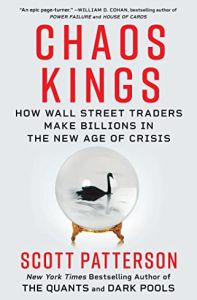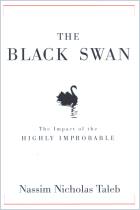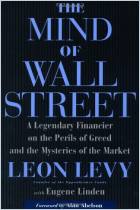Melden Sie sich bei getAbstract an, um die Zusammenfassung zu erhalten.

Melden Sie sich bei getAbstract an, um die Zusammenfassung zu erhalten.
Scott Patterson
Chaos Kings
How Wall Street Traders Make Billions in the New Age of Crisis
Scribner, 2023
Was ist drin?
These traders always see the glass as half empty.
Recommendation
The coronavirus pandemic reminded even the most resolute of optimists that things can go horribly wrong when you least expect it. But that reality has made some fund managers quite wealthy. In this intriguing look at “black swan” investing, journalist Scott Patterson offers valuable insights into this pessimistic brand of trading. Black-swan traders don’t try to forecast crashes or predict crises; they just assume that one is always lurking around the corner. Then, when disaster does strikes, the traders reap huge rewards. Patterson provides readers an engaging overview of the broad theory and telling details about this niche in investing for calamity.
Summary
About the Author
Scott Patterson has been a financial reporter for more than two decades, mostly at The Wall Street Journal. He is the author of The Quants: How a New Breed of Math Whizzes Conquered Wall Street and Nearly Destroyed It and Dark Pools: High-Speed Traders, A.I. Bandits, and the Threat to the Global Financial System.























Comment on this summary